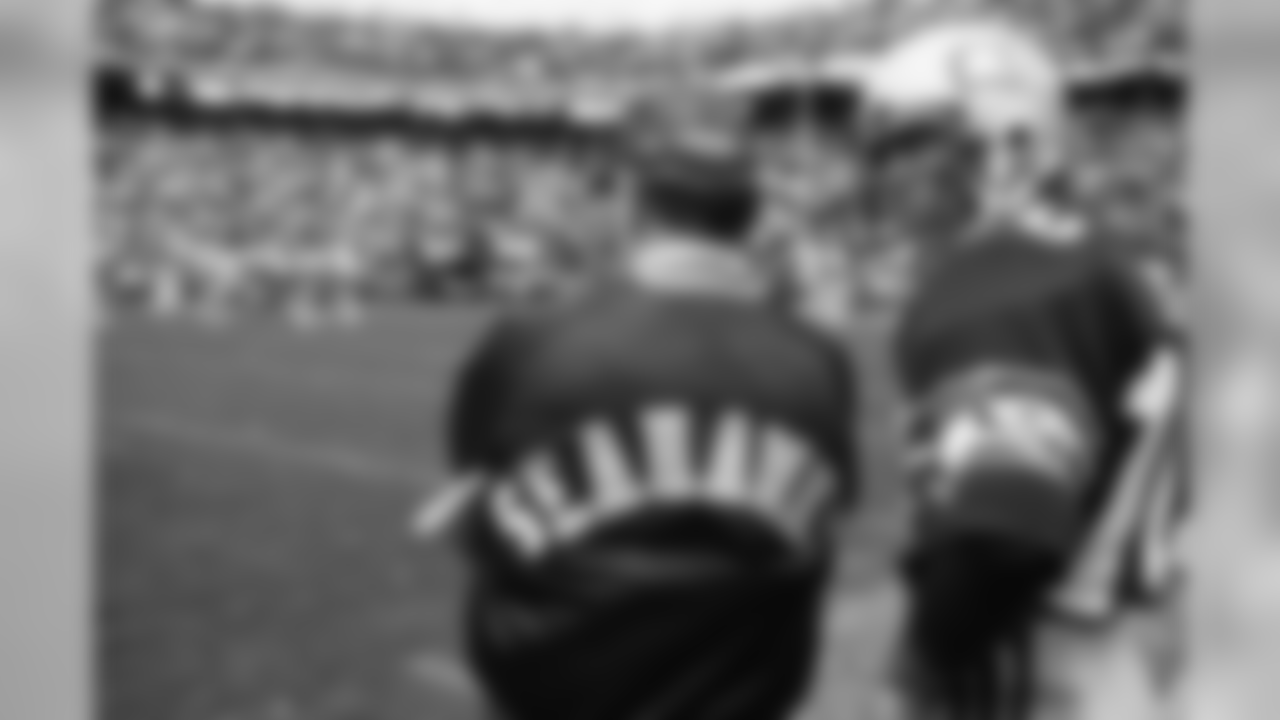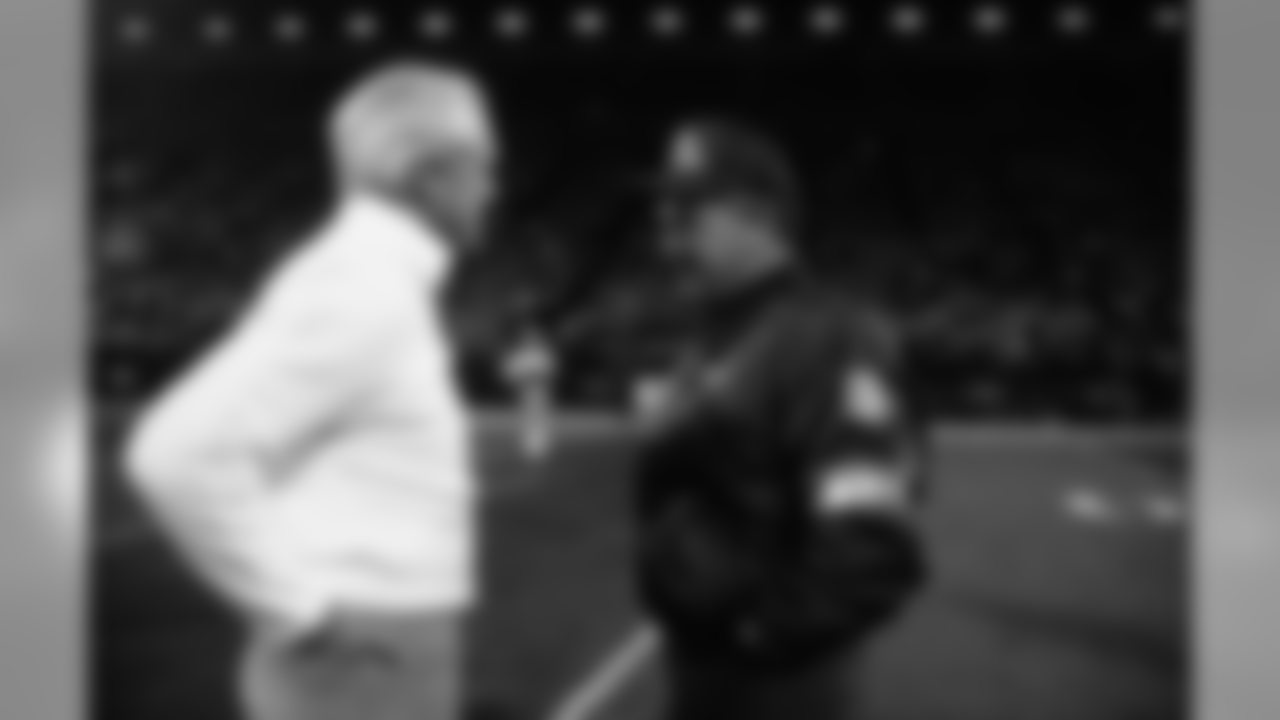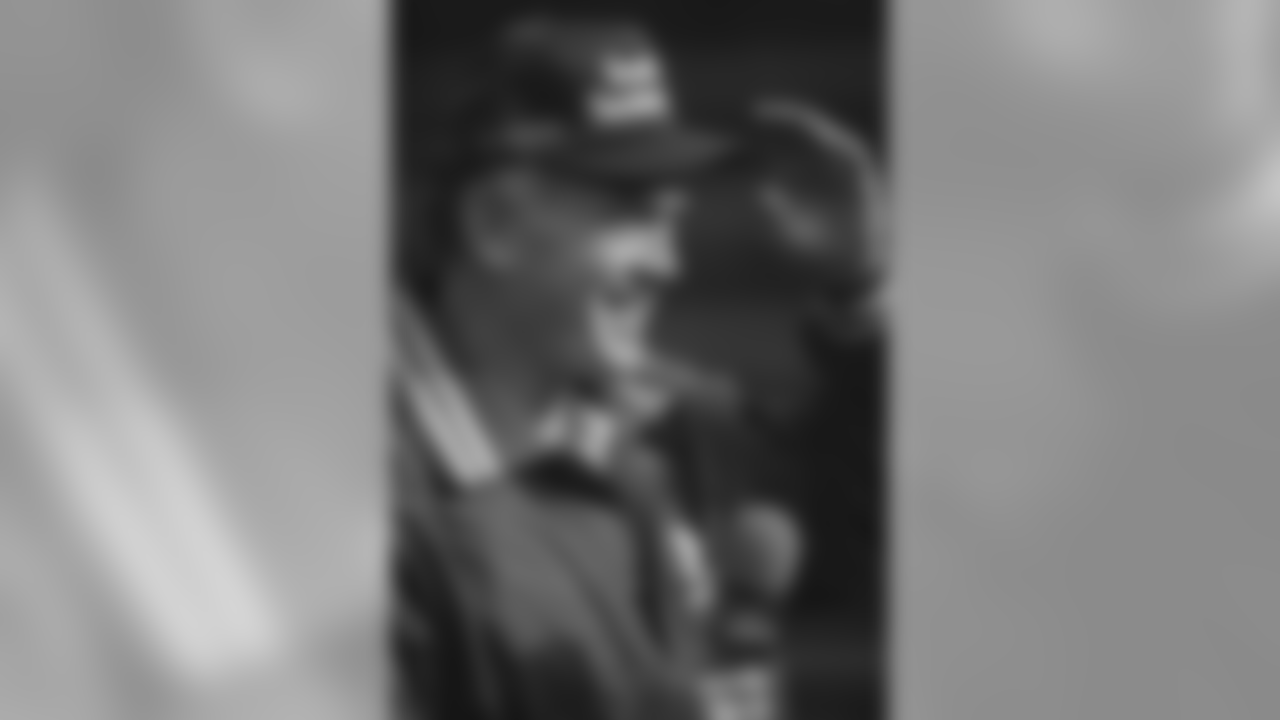Just the mention of his name brings a rapid response from those who knew Chuck Knox best, including nine-seasons worth of players from his memorable career as coach of the Seattle Seahawks.
"Ah, Chuck," his former players begin, smiling and shaking their heads.
What follows undoubtedly includes an anecdote about the lessons learned from Knox's words of wisdom, which became known as Knoxisms and left an indelible tattoo of truth on all who encountered them and the man who lived by them.
Knox is gone, having passed at the age of 86 after a long battle with dementia. But his words — those words — live on.
The most-used, and most-appropriate for any occasion, was his infamous "Play the hand you're dealt."
That's what Charles Robert Knox learned to do while growing up in Sewickley, Penn., and during the Depression. Another rooted in his hard-scrabble Wonder Years was "Don't tell me how rough the water is, just bring the ship in."
Then there was one that came complements of a story he liked to tell about his father and was rooted in a pre-celebration of the annual St. Patrick's Day celebratory parade in Sewickley. The elder Knox and some friends took to the route just before the start of the parade — and just after having a few pops. As the younger Knox recalled, someone said, "Look at those guys, they're ready for anything." The almost-in-the-same-breath retort: "Yeah, ready for anything, but prepared for nothing."
These were words to live by for the young Knox, and later words to coach by.
One of the first things Knox did after being hired by the Seahawks in 1983 was sign former players to, as he put it, "Teach these guys how to win." That's how former Buffalo Bills guard Reggie McKenzie and a trio of ex-Los Angeles Rams — tight end Charle Young, fullback Cullen Bryant and linebacker Jim Youngblood — became Seahawks.
One of the lessons — or Knoxisms — they preached: "What you do speaks so well, there's no need to hear what you say."
Even Knox's hometown earned a Knoxism. Whenever presented with the obvious, Knox would punctuate his response with, "That's eighth grade Sewickley."
It was easy to scoff at Knox's use of these bromides, which the local media would do on a regular basis after he had peppered his press conference with them. But they meant much more to Knox.
One summer when the Seahawks were holding training camps at Eastern Washington University in Cheney, Knox's son was a ballboy. I asked Chuckie — as Chuck Knox, Jr., was known in those days — what it was like growing up with Chuck as his father and being spoon fed those Knoxisms.
First came the smile, then the head shake. "He's the same guy," the younger Knox said. "He's the same way with me as he is with you guys. Over breakfast, I'll be telling him about something that's happening at school and my dad tells me, "You've got to play the hand you're dealt."
But make no mistake, Knox did have a way with words. One of the more uncanny elements of the chaff and charm that could be Knox was his ability to use the bluest of terms while cussing out a player for making a mistake in practice; and then, in the next moment while addressing reporters, offer an articulate response that often reached eloquent and was in stark contrast to what we'd just heard on the practice field.
Although Knox constructed his considerable resume on the merits of his head-coaching stints with the Los Angeles Rams (1973-77), Buffalo Bills (1978-82), Seahawks (1983-91) and Rams again (1992-94), the three-time NFL Coach of the Year was first and foremost an offensive line coach — with the New York Jets and then Detroit Lions.
When he wanted to stress a finer point of blocking to one of his linemen, Knox would turn his hat around and launch himself into the explanation — as well as the usually startled player.
Will Grant had played center for Knox when both were with the Bills. Upon signing with the Seahawks in 1986, the first thing Grant said to reporters was, "I see Chuck's been doing some coaching again."
Greeted by puzzled looks, Grant touched his forehead and added, "He's got that gash. These players are wearing pads. Chuck isn't. So when he buries his head into your chest to prove a point, that gash opens up. I know, because I've been there."
As it turned out, tackle Ron Mattes had been there as well during practice that day.
Another example of Knox's past and present colliding occurred in the media room at the team's old facility in Kirkland. It happened the day after the Seahawks' preseason finale against the San Francisco 49ers at the Kingdome. Knox was discussing how players that turned the ball over could not play for him.
I interrupted him to offer, "Chuck, you can't be talking about Harry Sydney."
Sydney had fumbled in the game, but only after being undercut, flipping into the air and landing on his head.
Knox fixed his steely blue eyes on me, tapped the large wooden table in the middle of the room with his ring — a favorite gesture when proving a point that should have been obvious — and offered, "Don't tell me how rough the water is, just bring the ship in."
The next day, Sydney was released.
My favorite Knox story is one I've never written and told to only a few people. It happened during one of the NFC West Media seminars they held back in the day — when there was no Internet or ESPN. The division's coaches would gather for a weekend during the offseason in one of the five NFC West cities — Seattle, San Diego, Denver, Los Angeles or Kansas City — to answer questions for reporters.
After one of those sessions in San Diego, I retreated to the combined hospitality/media room at the Hyatt Islandia to write my story. One problem: In the outer room, Knox and then San Diego Chargers coach Don Coryell were holding court. It was a two-man court, but the wine and the tales were flowing, and what Knox and Coryell were talking about was a lot more interesting than what I was writing.
While Knox could spin a yarn with the best of them, it was his ability to coax the best from his players that truly set him apart. To fully appreciate what Knox did for the Seahawks it helps to examine what happened before he arrived in 1983 and after he left following the 1991 season.
The pre-Knox Seahawks had some brushes with success after entering the NFL as an expansion team in 1976. They posted 9-7 records in 1978 and 1979, but then went 4-12, 6-10 and 4-5 in the strike-shortened season of 1982 to pave the way for Knox's heralded arrival.
The post-Knox Seahawks would not finish with a winning record until 1999.
Take an even closer look and the things the Seahawks accomplished under Knox were even more staggering. The Seahawks not only earned their first playoff berth in Knox's first season, 1983, they didn't stop until they had reached the AFC Championship Game. The next time the Seahawks appeared in a conference championship game was 2005.
Knox's 1988 team won the franchise's first division title. The Seahawks didn't claim their next division title until 1999.
In their first six seasons under Knox, the Seahawks advanced to the postseason four times and won three playoff games. In the seven seasons before Knox arrived and the 10 seasons that followed that AFC West title in 1988, the Seahawks did not appear in the postseason and posted only three winning seasons. After their playoff win under Knox following the 1984 season, the Seahawks would not win another game in the postseason until 2005.
Is it any wonder that most who played for him, as well as the team's longtime fans, remember Knox with such reverence — as well as a smile and a shake of the head. That's also why it was no surprise when Knox was inducted into the Seahawks Ring of Honor in 2005. It was, of course, eighth grade Sewickley.
Take a look back at some of the best photos of Seahawks Ring of Honor member Chuck Knox, who coached the club for nine seasons (1983-91). Knox passed away at the age of 86.


Seattle Seahawks head coach Chuck Knox during the Seahawks 17-0 loss to the Chicago Bears on September 9, 1990 at Soldier Field in Chicago, Illinois. (AP Photo/NFL Photos)

Seattle Seahawks head coach Chuck Knox yells from the sideline during an NFL game against the San Diego Chargers in San Diego, Calif., Dec. 14, 1986. The Seahawks defeated the Chargers 34-24. (AP Photo/Damian Strohmeyer)

Seattle Seahawks head coach Chuck Knox celebrates on the shoulders of his players after in a 27 - 20 win over the Miami Dolphins in the AFC Divisional Playoffs game on Dec. 31, 1983 at Orange Bowl in Miami,. (Al Messerschmidt via AP)
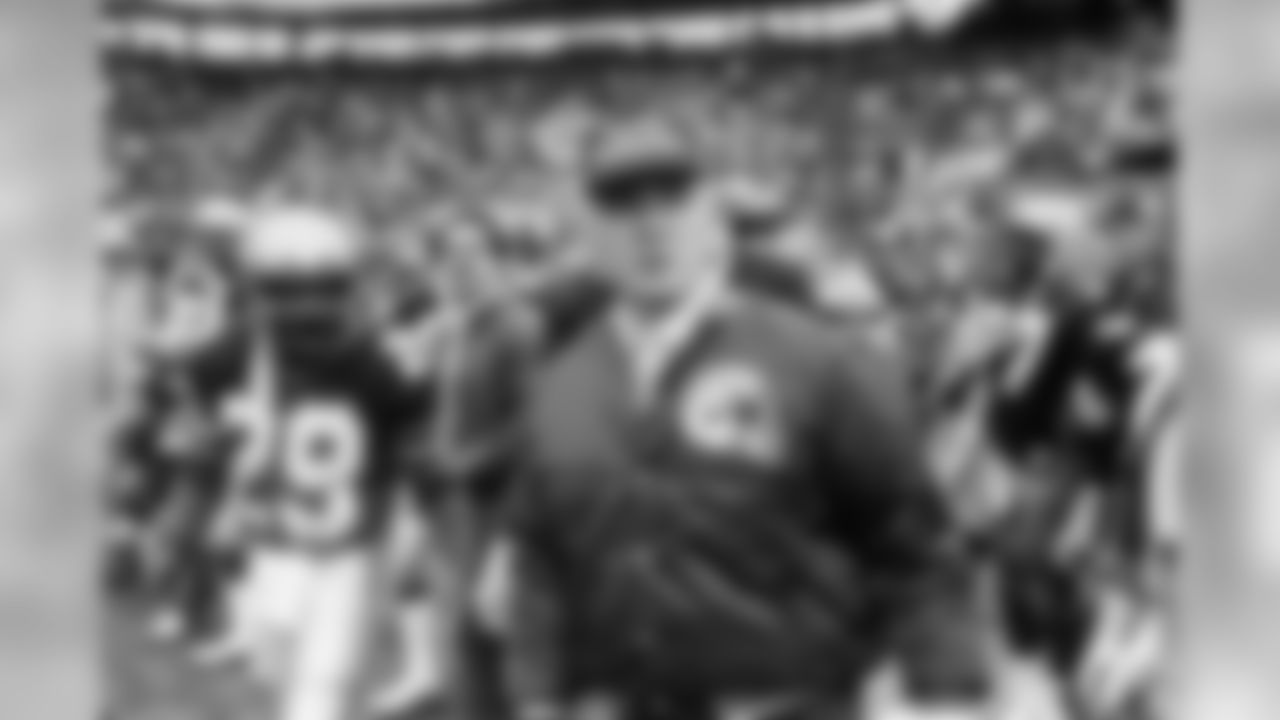
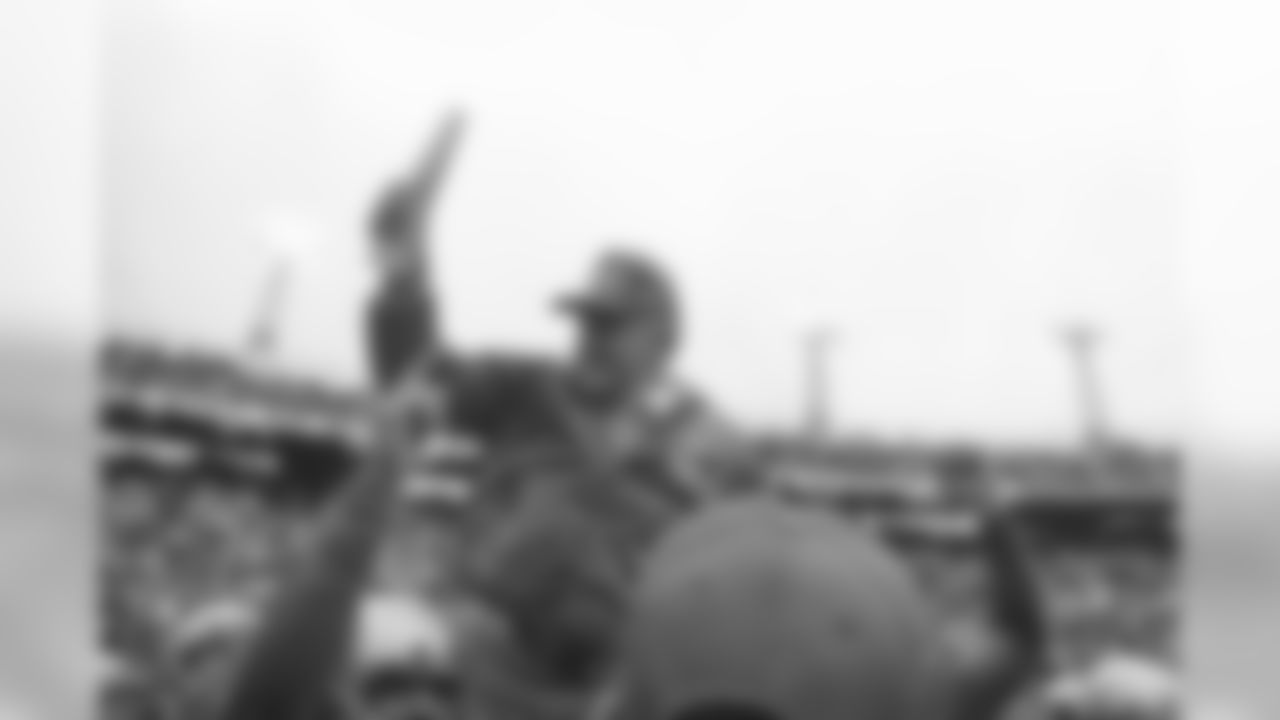
Seattle Seahawks coach Chuck Knox, is obviously happy as he is carried from the field after his Seahawks defeated the Miami Dolphins in the AFC-Semi-Finals at Miami on Saturday, Dec. 31, 1983 with a score of 27-20.(AP Photo)
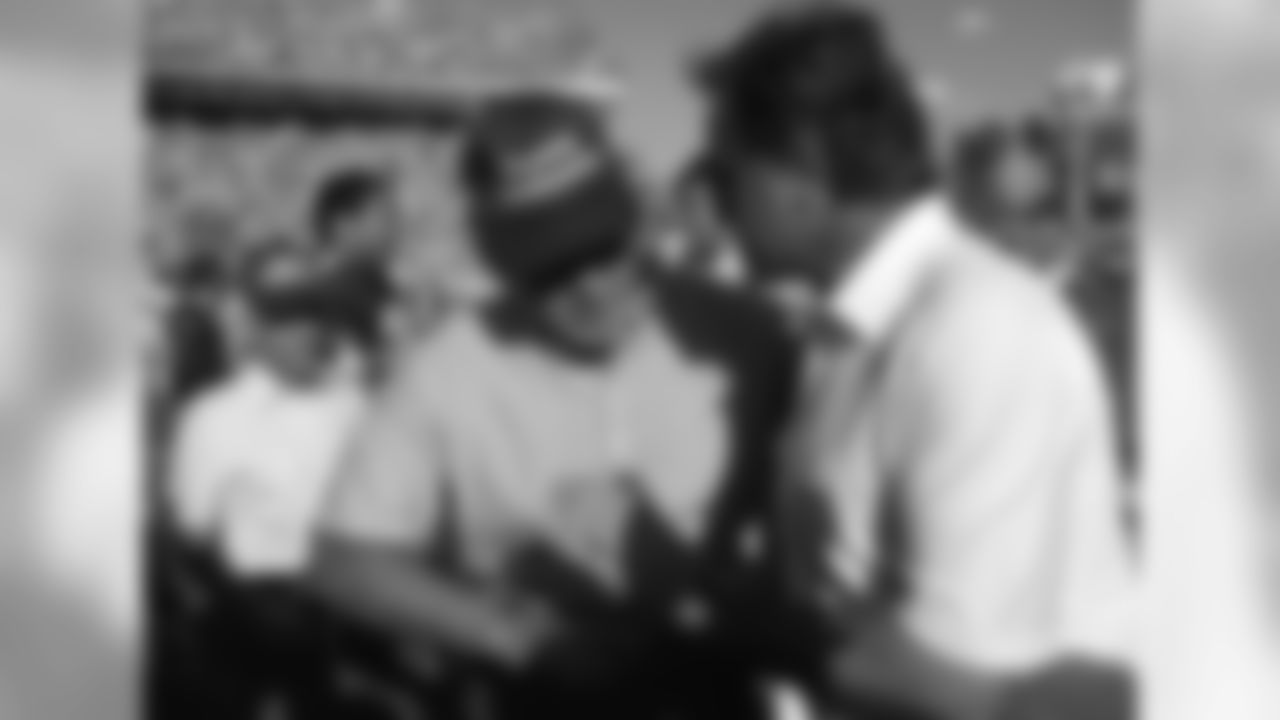

Seattle Seahawks head coach Chuck Knox in June 1991. (AP Photo/NFL Photos)
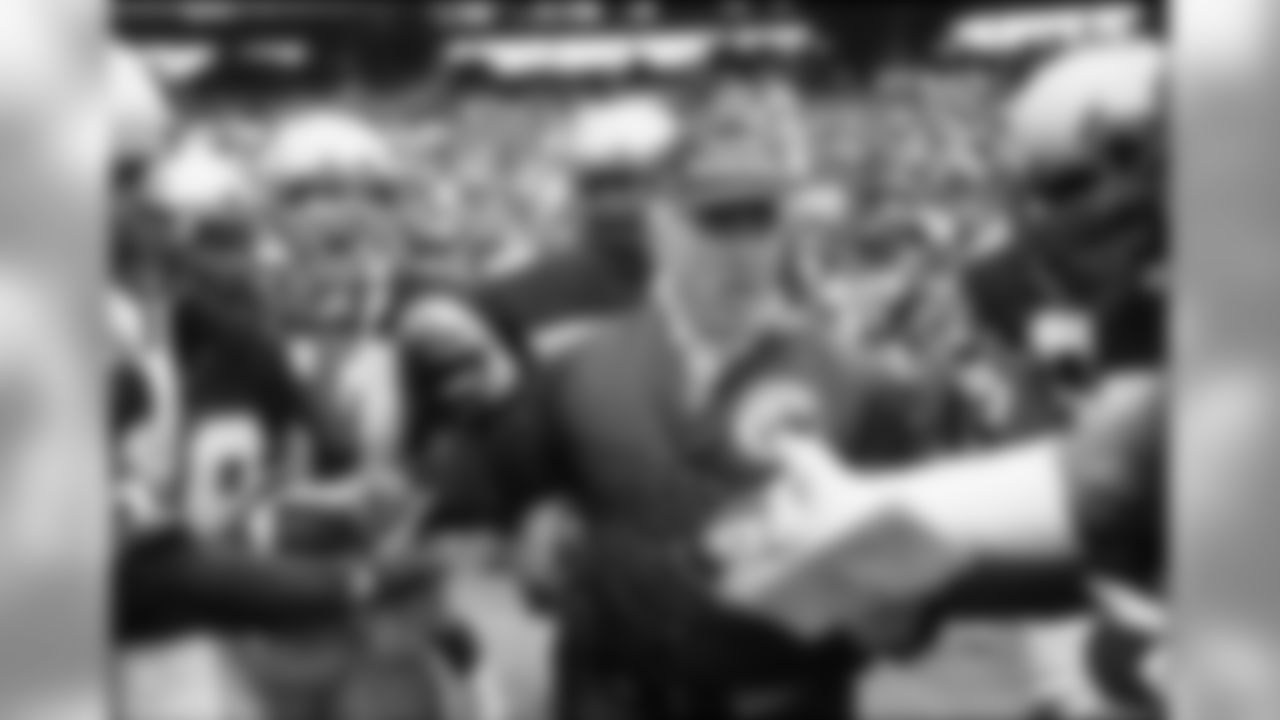
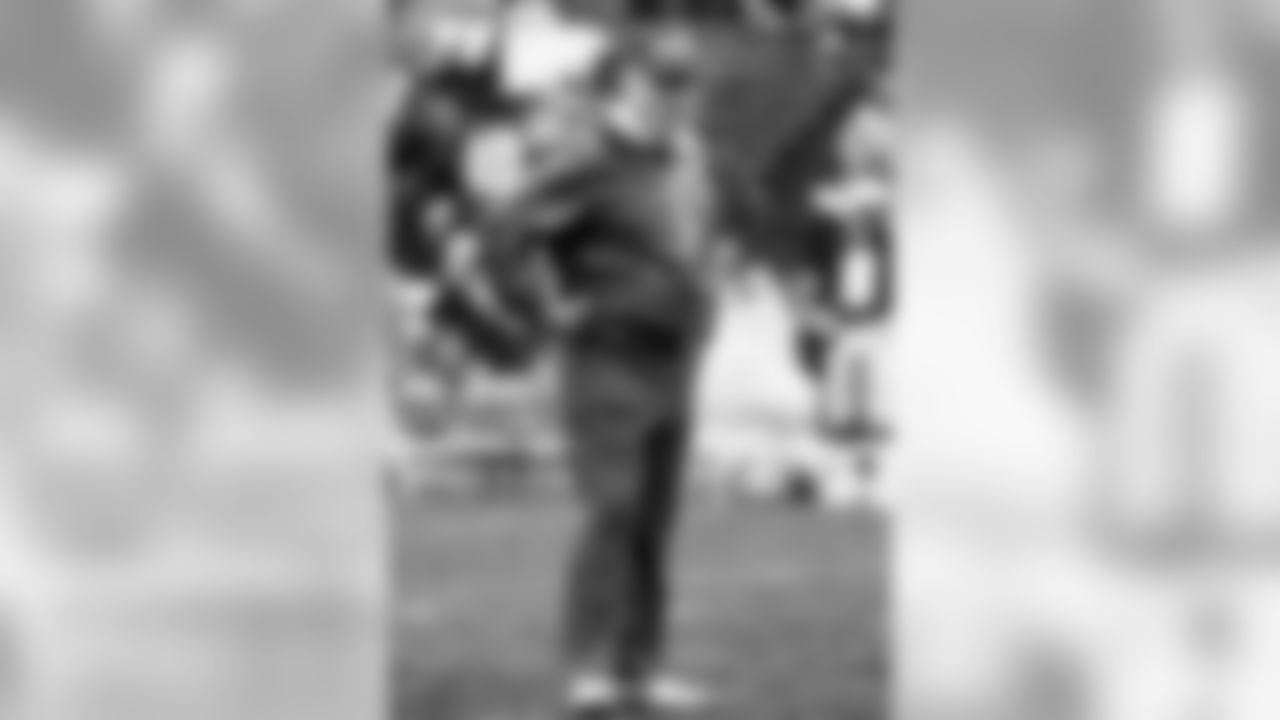
Seattle Seahawks coach Chuck Knox watches warmups before play against the Miami Dolphins in 1983. (Al Messerschmidt via AP)

Seattle Seahawks coach Chuck Knox watches play in 1983. (Al Messerschmidt via AP)
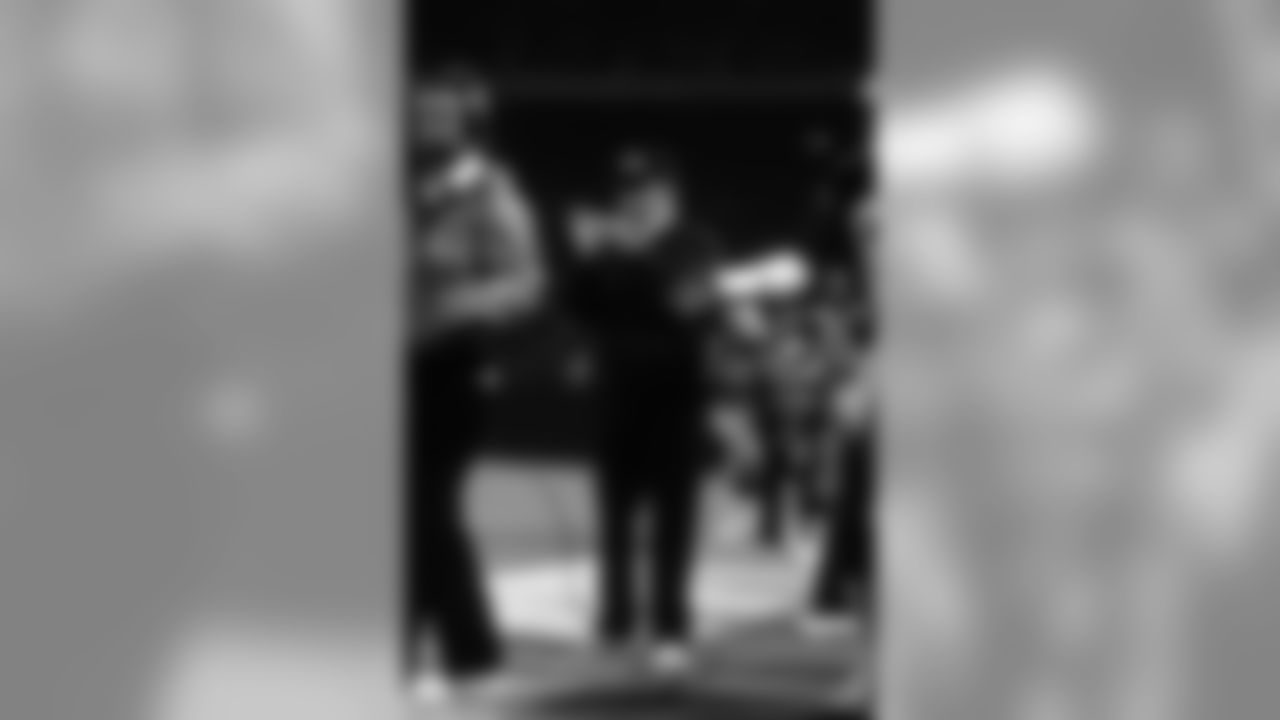
Seattle Seahawks head coach Chuck Knox during a game in 1987. (AP Photo/NFL Photos)

Seattle Seahawks head coach Chuck Knox during a game in 1987. (AP Photo/NFL Photos)

Seattle Seahawks Chuck Knox (Head Coach) during a game from his 1988 season with the Seattle Seahawks. Chuck Knox was a head coach for 22 years with 3 different teams.(David Durochik via AP)

Seattle Seahawks head coach Chuck Knox during a game in 1988. (AP Photo/NFL Photos)

Seattle Seahawks head coach Chuck Knox during a game in 1986. (AP Photo/NFL Photos)
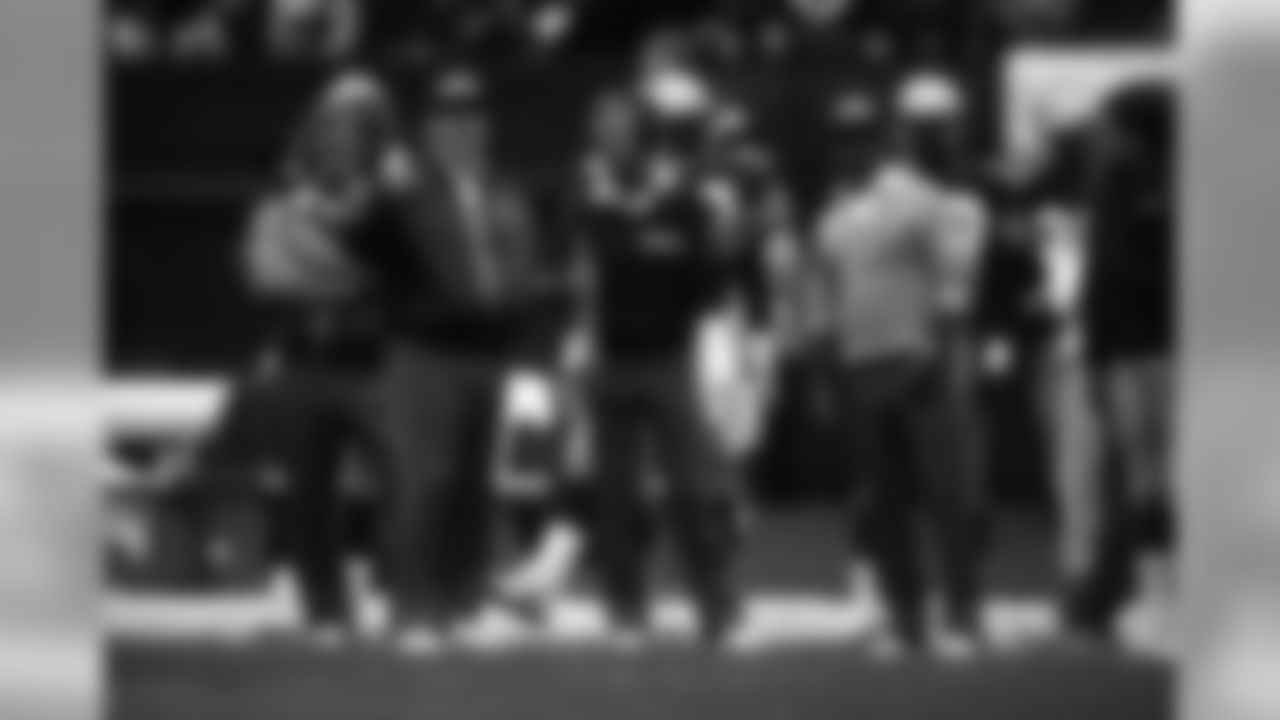
Seattle Seahawks head coach Chuck Knox gives instructions from the sideline during the Seahawks 16-10 victory over the Cleveland Browns on October 9, 1988 at Cleveland Municipal Stadium in Cleveland, Ohio. (AP Photo/NFL Photos)

Seattle Seahawks head coach Chuck Knox in June 1991. (AP Photo/NFL Photos)

Seattle Seahawks head coach Chuck Knox hears words of encouragement from Bears head coach Mike Ditka following the Seahawks 17-0 loss to the Chicago Bears on September 9, 1990 at Soldier Field in Chicago, Illinois. (AP Photo/NFL Photos)
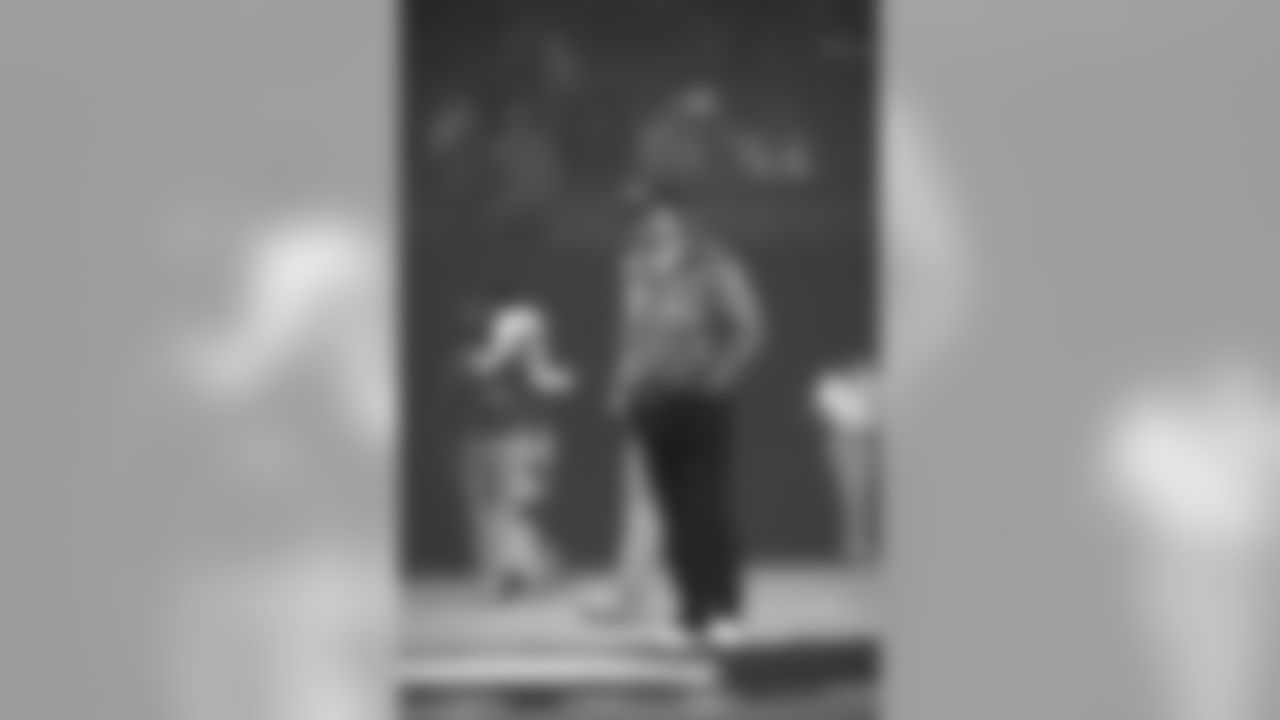
Head coach Chuck Knox of the Seattle Seahawks. Chuck Knox - Head Coach - Seattle Seahawks - File Photos (AP Photo/NFL Photos)

Seattle Seahawks head coach Chuck Knox during a game in 1990. (AP Photo/NFL Photos)

Former Seattle Seahawks head coach Chuck Knox looks at a portrait of himself as coach during the ceremony where he is inducted into the Seahawks Ring of Honor during halftime of the Seahawks game against the Arizona Cardinals in Seattle, Sunday, Sept. 25, 2005. He coached the Seahawks from 1983 to 1991. (AP Photo/John Froschauer)
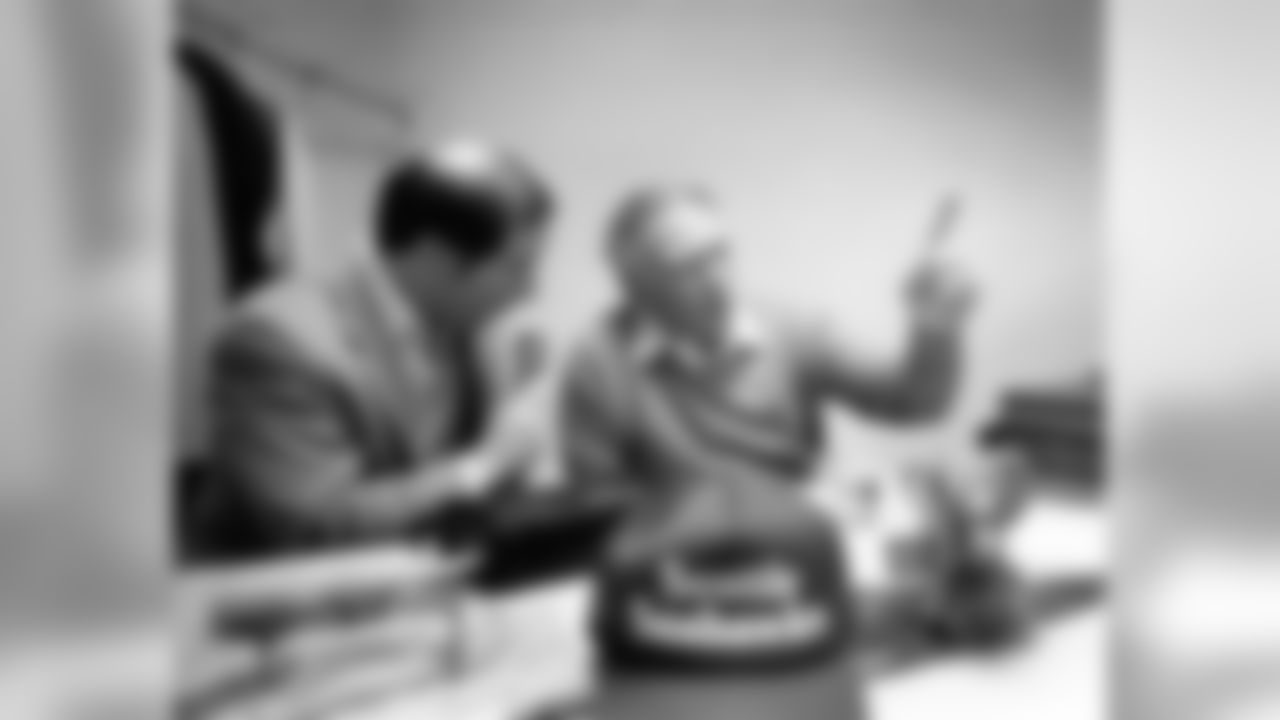

Seattle Seahawks Chuck Knox (Head Coach) during a game from his 1988 season with the Seattle Seahawks. Chuck Knox was a head coach for 22 years with 3 different teams.(David Durochik via AP)

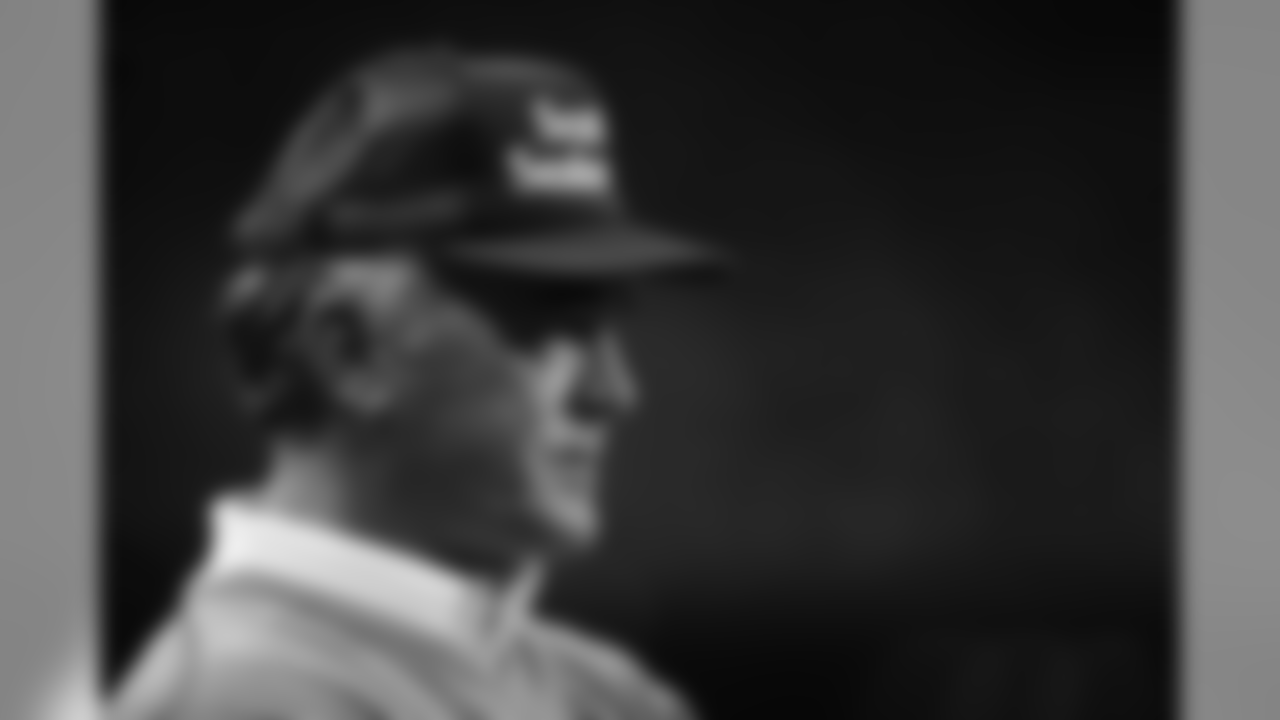
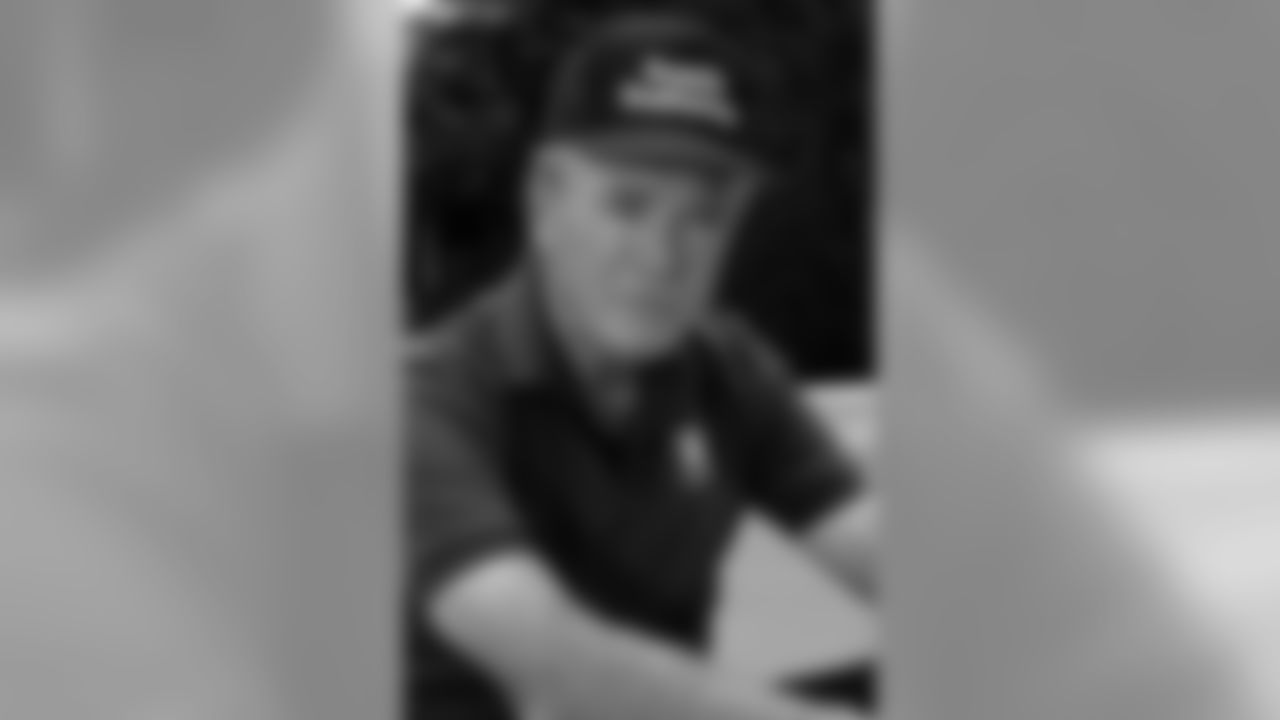
Seattle Seahawks head coach Chuck Knox in June 1991. (AP Photo/NFL Photos)

